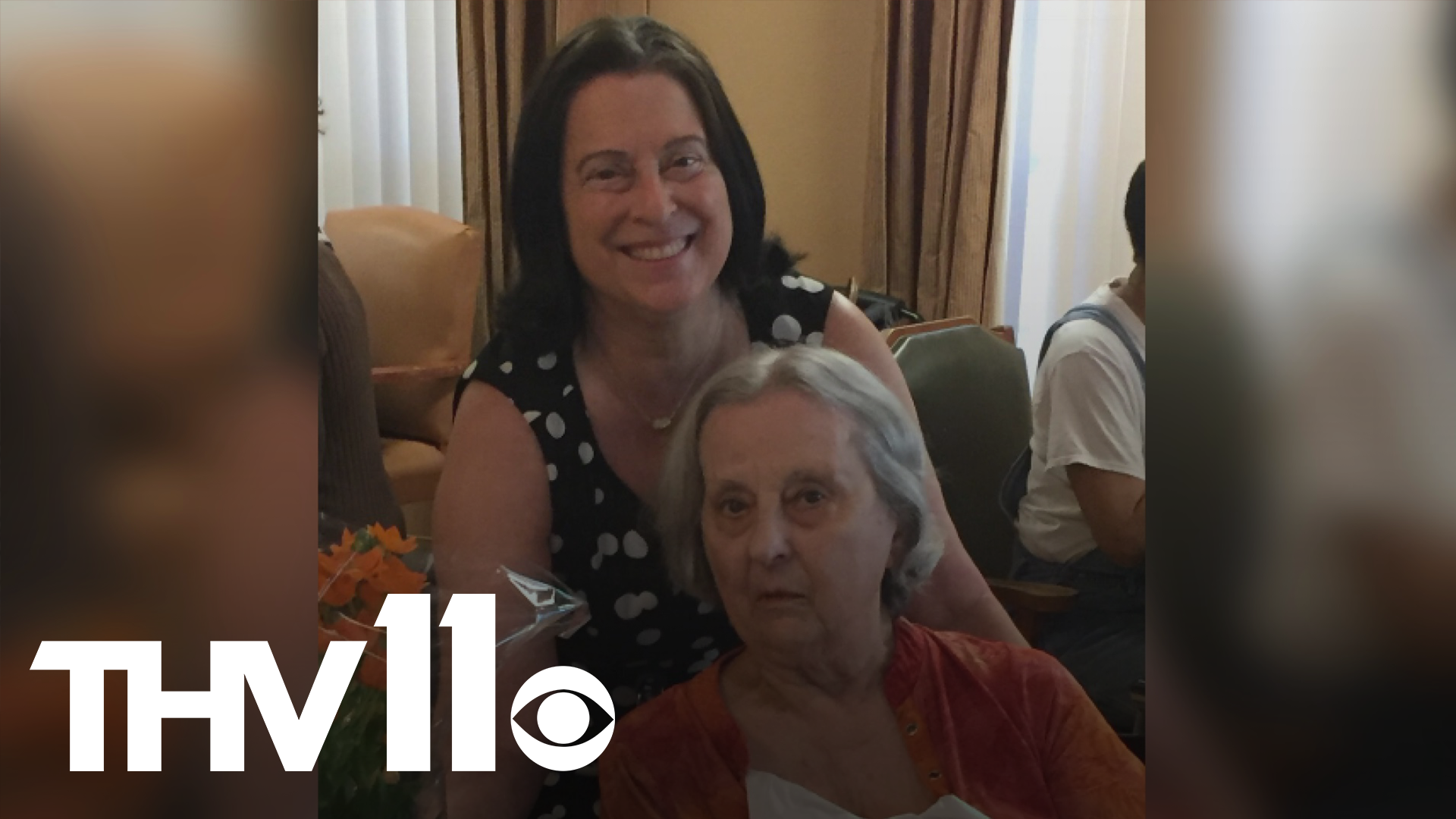LITTLE ROCK, Ark — Over the last year, we've seen image after image of families trying to visit loved ones while outside the nursing home, peering in through windows or using FaceTime, hoping for a wave and a smile.
The pictures are touching, but they offer evidence of a situation that can lead to problems.
For eight years, Carolyn Hughes was in a nursing home, at peace, comfortable, and paid regular visits by her three daughters — Susan, Marsha, Terri, and their families.
"There would be times when we would go in and there would be concerns that we would have, and we would address them and they would immediately take care of them," said Marsha.
But then COVID hit.
Cards, letters, window visits didn't seem to register with their mom. The three sisters became totally dependent on the nursing home.
"We didn't know what was happening or not happening, but we knew we weren't getting responses from our mother," Susan said.
But on December 2 last year, they got the call all families dread — their mother had COVID.
Susan said she called every single day from Dec. 2 to Dec. 9, asking how her mother was. She said she was always told her mother was fine.
But on Dec. 10, things took a turn for the worse and their mother was admitted to the hospital where the staff was shocked by her appearance. And what's more...
"She was COVID-free. She was extremely dehydrated," Susan said.
"So she hadn't received the basic care that she should've received in the nursing home," Marsha said.
The woman who had been an RN for over 30 years was in need of attention, but...
"By the time she got to the hospital, she was just past recovery," Marsha said.
Carolyn Hughes would be taken to hospice, where she briefly rallied, but after 17 days, she was gone, with her daughters by her side, and vowing later to make sure their story was heard.
"I think this is part of our healing, is allowing other people to know this is real. This is extremely real and other people are in the same situation," Susan said.
"Get in there. Do what you can. Fight for your loved one. Let them know you're not gonna take 'no' for an answer and when they tell you your loved one is fine, don't believe them," Terri added.
We reached out to DHS and received a memo that shows since March of last year, the office of long-term care had received 39 complaints related to visitation.
Here is the updated list long-term care visitation rules that were issued on Dec. 23:
- Compassionate care situations include without limitation visitation related to a resident’s end of life care as well as visitation by a resident’s friends and family members for residents who are struggling with a change in environment, lack of physical family support, grief after a friend or family member passes away, weight loss or dehydration because the resident is no longer receiving cueing or encouragement to eat or drink from caregivers or family members, and emotional distress due to not talking or interacting with others.
- For expanded visitation and other activities, a long-term care facility must meet the following requirements: 1) The facility has not had three newly positive COVID-19 case(s) in the fourteen (14) calendar days before expanded visitation or other activities are offered, measured from the date of the facility’s latest newly positive COVID-19 test result; 2) The facility has adequate staff to provide enough direct care, housekeeping, and dietary services to residents to meet the needs of all residents and existing legal requirements, and the facility is not under a waiver of any state or federal staffing requirements; 3) The facility has adequate PPE to meet the needs of residents and staff; 4) The facility screens every visitor, activity participant, and staff prior to entry to the facility, including facility employees, contractors, vendors, and all other persons who enter the facility; and 5) The facility will restrict access to the facility to all persons who meet any screening criteria for restricted access.
- Visitation and other activities are allowed only as scheduled by the facility in its discretion. Visitation and other activities shall be limited in duration pursuant to the facility’s scheduling requirements and limited to no more than two (2) visitors for each resident at a time.
- Once a long-term care facility is eligible for expanded visitation and other activities, the facility may allow salons and barber services inside the facility to reopen or otherwise provide services to residents subject to the requirements in this directive.
- Expanded visitation and other activities are not allowed for residents who have tested positive for COVID-19 for fourteen (14) calendar days after the resident’s first positive COVID-19 test or as long as the resident is subject to transmission-based precautions related to COVID-19, whichever period ends later.
- Expanded visitation and other activities are also not allowed for residents who are in quarantine or isolation due to the resident being a recent admission or pending COVID-19 test results.

